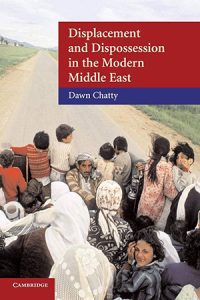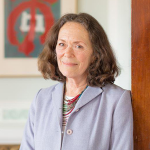Displacement and Dispossession in the Modern Middle East

Author: Dawn Chatty
Publisher: Cambridge University Press
Year of Publication: 2010
Print Length: 350 pages
Genre: Non-Fiction / Anthropology, History, Political Science, Cultural Studies, Migration & Refugee Studies
Area: Ottoman Empire, Mediterranean, Middle East, The Caucasus, The Balkans, The Black Sea Region
People: The Ottomans, Armenian, Chechnyan, Circassian, Christian, Kurds, Palestinian, Muslim
Topic: Dispossession, Refugees & Forced Migration, Asylum & Asylum Seekers, Asylum & Refugee System, Mobility & Immobility, Freedom to Move and to Stay, Movement of People and Ideas, Testimonies, Borders, Ethnography, Community, Culture & Society, Conflict, Exile & Exodus, Exclusion, Expulsion, Massacre, Persecution, Civil War, War, Statelessness, The Notion of Home, Integration, Minority Rights, Muslim World, Geopolitics, Politics & Power, History, Identity, Social Cohesion
Dispossession and forced migration in the Middle East remain even today significant elements of contemporary life in the region. Dawn Chatty’s book traces the history of those who, as a reconstructed Middle East emerged at the beginning of the twentieth century, found themselves cut off from their homelands, refugees in a new world, with borders created out of the ashes of war and the fall of the Ottoman Empire. As an anthropologist, the author is particularly sensitive to individual experience and how these experiences have impacted on society as a whole from the political, social, and environmental perspectives.
Through personal stories and interviews within different communities, she shows how some minorities, such as the Armenian and Circassian communities, have succeeded in integrating and creating new identities, whereas others, such as the Palestinians and the Kurds, have been left homeless within impermanent landscapes. The book is unusual in combining an ethnographic approach that analyzes the everyday experiences of refugees and migrants against the backdrop of the broad sweep of Mediterranean history. It is intended as an introduction for students in Middle East studies, history, political science, and anthropology and for anyone concerned with war and conflict in the region.
Table of Contents
List of Tables
List of Charts and Maps
Acknowledgements
Introduction: Dispossession and Forced Migration in the Middle East: Community Cohesion in Impermanent Landscapes
1. Dispossession and Displacement within the Contemporary Middle East: An Overview of Theories and Concepts
2. Dispossession and Displacement in the Late Ottoman Empire: Distinct Cultures and Separated Communities
3. Circassian, Chechnyan, and Other Muslim Communities Expelled from the Caucasus and the Balkans
4. The Armenians and Other Christians: Expulsions and Massacres
5. Palestinian Dispossession and Exodus
6. Kurds: Dispossessed and Made Stateless
7. Liminality and Belonging: Social Cohesion in Impermanent Landscapes
Bibliography
Index

Dawn Chatty is Emerita Professor of Anthropology and Forced Migration and Former Director of the Refugee Studies Centre (2011-2014), University of Oxford. She is a social anthropologist whose ethnographic interests lie in the Middle East, particularly with nomadic pastoral tribes and refugee young people. Her research interests include a number of forced migration and development issues such as conservation-induced displacement, tribal resettlement, modern technology and social change, gender and development and the impact of prolonged conflict on refugee young people. Dawn is both an academic anthropologist and a practitioner, having carefully developed her career in universities in the United States, Lebanon, Syria and Oman, as well as with a number of development agencies such as the UNDP, UNICEF, FAO and IFAD. After taking her undergraduate degree with honours at UCLA (University of California at Los Angeles), she took a Master’s degree in Development Studies from the Institute of Social Studies, the Hague, Netherlands. She returned to UCLA to take her PhD in Social Anthropology under the late Professor Hilda Kuper.
Source: https://www.rsc.ox.ac.uk/people/dawn-chatty
More from Dawn Chatty in this library, click here.
